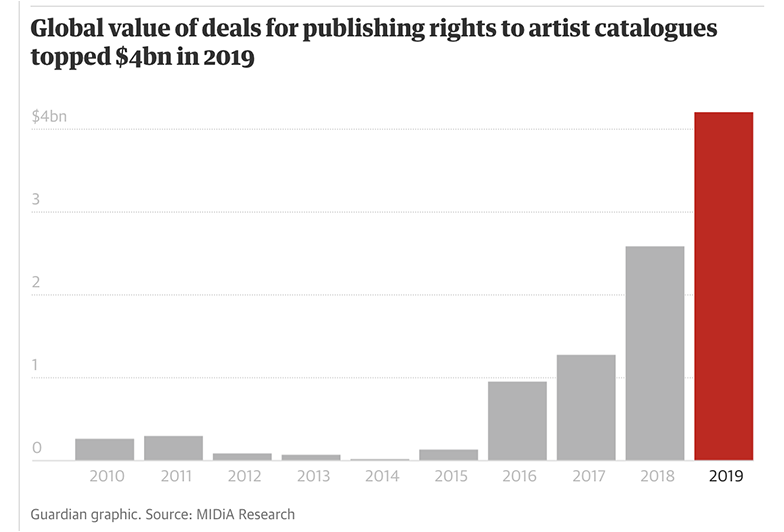11 Alternative Investments You Need to Know About
While investing in stocks, bonds, and mutual funds are among the most common ways to grow wealth, there are excellent alternative investment opportunities you'd be wise to consider adding to your portfolio.
Join us as we dive into the world of alternative investments and explore 11 diverse and unique opportunities. From real estate, private equity, and commodities, you'll discover alternative investment platforms that can diversify your portfolio and potentially yield impressive returns.
Private Equity
The number of private companies in the U.S. far exceeds that of public ones. A private company is held under private ownership (by founders, management, or a group of investors), and the public isn't privy to its business.
Private equity investing occurs when pooled investor funds are used to acquire or invest in private companies not publicly traded on stock exchanges. These private equity shares can be acquired directly from the company but are more commonly obtained through a professional management firm. Private equity investments aim to improve the company and sell it at a profit.
Those wanting to invest in private equity should understand that it's limited to accredited investors because of the significant dollar amount required and the high risk. Private equity investment is considered a separate asset class whose primary characteristics are high risk, illiquidity, and finite durations.

Real Estate
A strong argument can be made for real estate investing being less risky than other investment opportunities. This type of investing has been compared to bonds but is significantly better due to steady rental incomes, equity, and appreciation.
Unlike traditional ones, such as the stock market, alternative investments provide higher returns, income, lower volatility, and diversification. And real estate, the world's largest asset class, fits this bill.
Real estate investors enjoy cash flow income from rents and watch their holdings appreciate. It's also possible to benefit from real estate without direct ownership through REITs (Real Estate Investment Trusts). REITs act like mutual funds; a manager uses investors' money to purchase or fund properties and developments. Investors earn passive income through rents and interest paid on loans. It's all the benefits of ownership without being directly involved.
Private Debt
Private debt investing, also known as private credit, occurs when investment managers or institutions invest money in private loans to companies without the involvement of banks. Interest is paid to investors, who act like a bank, during the specified length of the loan.
One benefit of private debt investing is that it offers another way of diversifying your portfolio apart from more traditional assets like bonds and towards higher yield and flexible sources. On the downside, private debt investing is illiquid and may not be as transparent as other investment opportunities.
Hedge Funds
Before wondering how to invest in a hedge fund, investors should understand that this type of investing demands a significant amount of income to become involved. And there is also the high risk.
Hedge fund managers use pooled investor money to buy investments like stocks, bonds, and other assets. The goal is to use varying growth strategies like leveraged, growth-based investing, and short selling to realize short-term gains; in other words, it's high-risk, high-reward.
Wealthier investors who can afford higher fees and absorb losses, along with institutional investors (pension funds), are the ones typically attracted to hedge funds.
Commodities
When looking for alternative investment platforms and opportunities, it's reasonable to think about how to invest in commodities. They bring diversification to your portfolio and buffer price exposure in a value chain.
Commodities like energy products, agricultural products, and metals provide an avenue to a direct investment experience. Physical ownership, futures contracts, individual securities, mutual funds, exchange-traded funds (ETFs), and exchange-traded notes (ETFs) are all ways to invest in commodities. When you invest in commodities, you buy with the hope that the value will increase over time. Unlike stocks or bonds, you are betting on the value of physical goods.

Collectibles
Collectibles are simply items worth more now than when they were initially sold. They include rare coins, vintage toys, stamps, comic books, trading cards, and art. Investors buy and hold onto them, expecting their value to increase over time. Collectibles have always been a fun and easy way to invest, but their value can also be unpredictable, so you must do your research before investing.
Collectible investing often stems from a passion. A rare Babe Ruth rookie card, set to go onto the auction block in November 2023, could go as high as $12 million. It's likely a huge fan of the sport, and Babe himself will buy that card. It would be highly unusual for a dedicated art collector to be interested in the card or the auction.
Structured Investment Products (SIPs)
While structured investment products (SIPs) are similar to financial institutions or bank financial packages, it's essential to understand the risks and how they work before you invest.
SIPs combine investments like stocks or bonds in a specific way to offer particular benefits. They are usually created by investment banks for hedge funds, organizations, or the retail client market to meet an investor's specific needs through a customized mix of assets.
They are pre-packaged investments with one or more derivative components. They start with traditional security like a bond but replace standard payment features (period interest payments and final principal) with non-traditional payoffs from the underlying assets.
Understand that SIPS can range from simple to highly complex, can come with hidden fees, may not be insured by the FDC, and lack liquidity.
Venture Capital
It takes money to start a company or a small business, and investors play a role by supplying venture capital to those they believe have long-term growth potential. Investors will provide money to the startup in exchange for a share of the ownership.
Venture capitalists tend to be wealthy investors, investment banks, and other financial institutions skilled in seeing the growth potential. This type of investment has the potential to be risky because, despite all the best intentions and preparations, not all businesses succeed. There are simply factors beyond the control of business owners and investors alike.
Distressed Debt
Distressed debt investing occurs when an investor purchases the debts of a struggling company with an unstable capital structure due to a debt load that is too high, an inability to refinance, or the inability to meet restrictions on debt covenants.
Distressed debt investors will provide the capital in the existing debt of a company, government, or public entity. Before that, they research to evaluate the financial distress, look for a successful business model, and confirm demand for the product or service. 
Derivatives
A derivative is a contract between two parties where the value of the contract is based on an underlying asset. Examples of underlying assets are stocks, commodities, and interest rates. When you invest in a derivative, you're buying value - a bit like predicting the future price of something.
Derivative investing is very complex, unlike simple buy-low-sell-high or buy-and-hold investment strategies. There is a great deal of hedging and speculation, which is risky, and it's recommended that only experienced investors get involved.

Intellectual Property (IPs)
Intellectual property (IP) is becoming a more frequent topic of conversation but still tends to be overlooked by investors. An IP is an intangible asset with trademarks, patents, trade secrets, and copyrights.
The value of an IP is hidden, and you won't find it on balance sheets or in financial reports, but it can still strongly influence the value of a company and its stock prices. When investing in IPs, you invest in the creative process of ideas and inventions.
IP investors aim to make money from the income generated by these intangible assets. Royalties from book, music, or software sales are great examples. As you can imagine, there are risks with IP investing, so it's essential to do the research and be well-informed.
Popularized recently is the sale of music catalogs to investment firms. Nine-figure deals with musicians including Katy Perry, Bob Dylan, Enrique Iglesias, and Justin Bieber have been signed with various investment firms looking to capitalize on the artists' revenue from future streams, album and single sales.
Final Thoughts
Passive real estate investing is an excellent way to become involved in alternative investing. Connect Invest specializes in real estate investing for beginners and experienced investors alike.
Our short notes fund a diversified residential and commercial real estate project portfolio. There is zero overhead, good liquidity, and no fees. It costs as little as $500 to begin investing, and setting up an account with your easy-to-use digital wallet takes just a few minutes, making real estate investing within reach for everyone.
Investors earn high-yielding, fixed-rate, passive income, and commitments are as short as six months. Interest begins accruing as soon as you choose to invest, and our exceptional, experienced team is available to answer any questions. Start here - today is a great day to begin investing and growing wealth!

